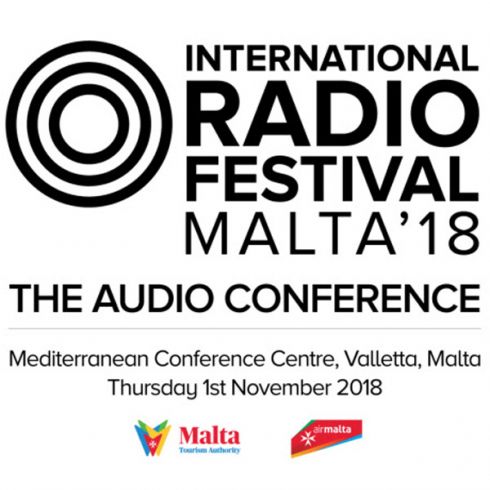
MALTA: Day two of the international leg and day four overall of the International Radio Festival 2018 in Valletta, Malta, saw the Global Audio Conference or GAC. GAC explored the way major broadcasting organisations are tackling the changing nature of audio consumption; the rise of niche-format radio stations, and the unique challenges of serving listeners across different media cultures with industry experts and leaders from broadcasters, production and technology companies.
The highlight of the day was The Orchard’s Scott Cohen’s startling revelation that “radio is dead and streaming services have disrupted listening habits” during a panel discussion on reinventing radio with Xanthe Fuller, Head of Community at Mixcloud, and BBC R&D’s Executive Producer Nicky Birch. The session was headed by Ireland’s Absolute Radio Network’s content director Paul Sylvester. Xanthe said, “With playlists you can be in an echo chamber of your own taste,” with one of the main take away points being how do we define radio in the future as it's a term that has changed meaning over time.
The conference kick-started on a positive note with the opening address by Broadcasting Authority of Malta chief executive Joanna Spiteri saying, "radio has continually evolved with time.”
Paul Sylvester was next and spoke on ‘Ten years of Absolute Radio’. He gave a lively presentation on the network’s rise to success over the past 10 years. He concluded, “Radio has the spirit and ability and the passion to do things differently and to be brave, be bold, care less, its only radio and be happy to make mistakes.”
David Lowe ran the audience through, how he created a more modern piece of music for the BBC News, which is instantly recognisable. He charted the history of jingles at BBC News in the session ‘Creating the BBC News Theme: The Art of Audio Design’.
Lowe’s session was followed by an IRF conference on exclusive viewing of a new cinema
advertisement for the launch of BBC Sounds. The session with Trevor Dann and Paul Smith discussing the reinventing and growing BBC Radio.
The post tea break session was themed ‘Island Life – Broadcasting on an Island.’ Channel 103 and Island FM station director from the Channel Islands James Keen, spoke with Malta’s 89.7 Bay Music Station’s Andrew Zammit about the benefits and challenges of targeting a small island-based audience with key takeaways being that they have a ‘different relationship listeners have with the station’ being ‘deeper and more intimate’.
In the ‘Niche Radio is the New Mainstream’ session, international radio consultant John Simons led a panel on the rise of niche radio with Matt Deegan (Fun Kids), Nick Pitts (Jazz FM) and Lindsay Wesker (Mi-Soul). This was followed by the panel discussion on reinventing radio mentioned above.
Malta has been presented as the Blockchain capital of the world. In the session ‘Blockchain in Audio’ Cliff Fluet explained blockchain and how the audio industry can benefit from this new technology giving examples of companies already doing this such as Jaak, Audius and Lucid Tunes.
A discussion on pirate radio took centre stage next – ‘Going legal - UK pirates through the years: gateway to new music’ with Tony Prince, Gordon Mac, Tempo Flex talking about the history of Radio Luxembourg, Kiss FM and Flex FM. The three speakers seemed to represent three generations of pirate radio, with the very astute Tony Prince being the oldest of them, followed by Gordan Mac and Tempo Flex in that order. All the three speakers ran through the rich history of pirate radio in the UK that started because of the bullying of BBC– a history in which they were involved themselves.
Nails Mahoney and Tracey Lee followed up with a presentation on The Power Of Sound with the days sessions ending with a Music Keynote interview with Martyn Ware hosted by Carly Wilford.